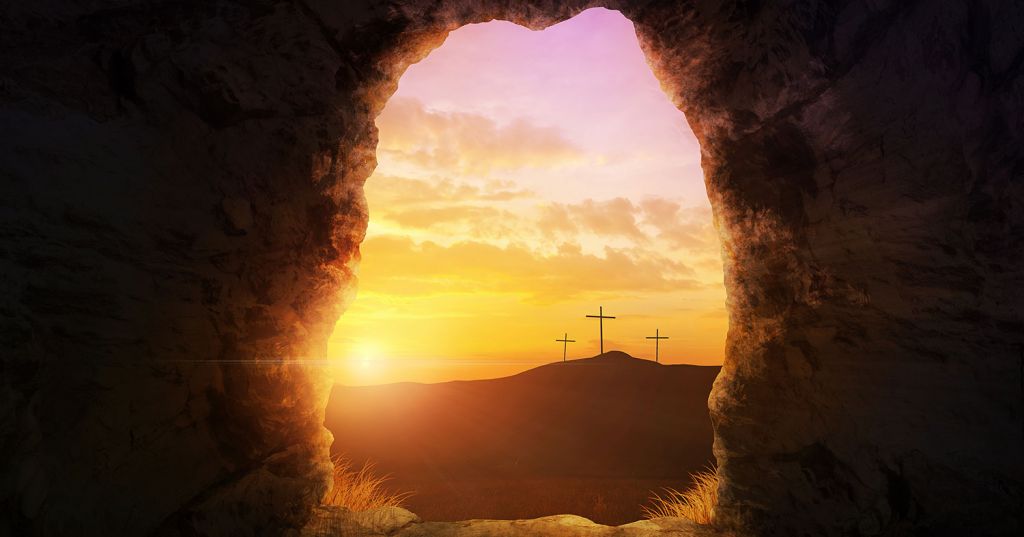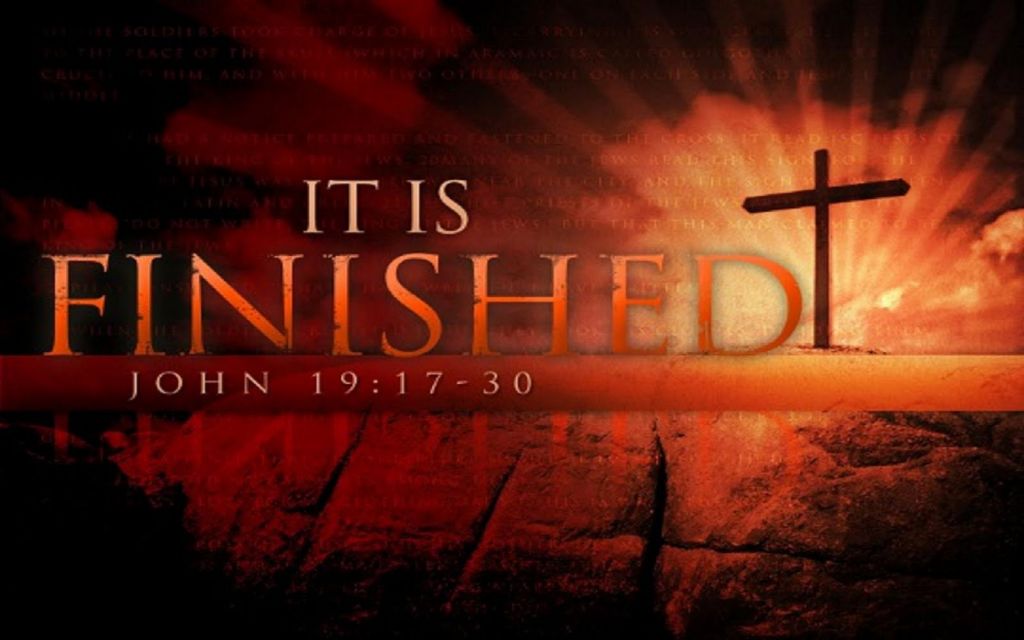
As Christians, we are called to be Disciples of Christ. In this calling, we have a great commission to preach the Gospel unto others and to bring salvation unto them. But it is not our own strengths or works that qualify us to enter into the Kingdom of God.
Ephesians 2:8-9 says that we are saved by grace, and this not from ourselves, but from the mercy of God, lest we boast. It further goes on to say that we are His workmanship created in Christ to do good works, which God had prepared in advance for us to do. True good works is therefore a fruit of the Spirit, planted in Christians, when we were born-again.

If our good works are an outflow of the Spirit’s work within us, then our qualification must come from God Himself. This way God had provided through Christ when He redeemed us with His blood on the cross. But even before Calvary, there are lessons we can learn about focusing on Christ as our qualification. The New Covenant Church in Damansara Kim is currently going through a study of the Gospel of Mark and recently Vincent Yap shared about this topic in one of the sermons.
In Mark 7:24-27 we can read of two remarkable testimonies. The first concerned the deliverance of a woman’s demon-possessed daughter, the second the healing of a blind man. These testimonies took place in Tyre and Sidon which in itself is a noteworthy fact. Tyre and Sidon were cities in ancient Palestine and the residents within them were mostly Gentiles. Jesus entered houses in those cities and wanted no one to know it but He could not be hidden.

The Woman with the Demon-Possessed Daughter
Mark 7:24-30
24Jesus left that place and went to the vicinity of Tyre.g He entered a house and did not want anyone to know it; yet he could not keep his presence secret. 25In fact, as soon as she heard about him, a woman whose little daughter was possessed by an impure spirit came and fell at his feet. 26The woman was a Greek, born in Syrian Phoenicia. She begged Jesus to drive the demon out of her daughter.
27“First let the children eat all they want,” he told her, “for it is not right to take the children’s bread and toss it to the dogs.”
28“Lord,” she replied, “even the dogs under the table eat the children’s crumbs.”
29Then he told her, “For such a reply, you may go; the demon has left your daughter.”
30She went home and found her child lying on the bed, and the demon gone.
If we look at the passage above, we may see the strange way Jesus treated the woman and we may wonder why He was so unfeeling. But there are revealing details within the passage. To begin with, it is clear that the woman had disqualifications that could have prevented her from receiving what she had pleaded for.
Within the Hebraic custom in Jesus’ time, her disqualification was three-fold. Firstly, she was a Syro-Phoenician, a Greek, and thus a Gentile, viewed by the Hebraic community at that time as likened to “dogs” or sinners. Secondly, she was a woman and in her desperation, she must have touched Jesus, a man, in public. Thirdly, she was a woman with a demon-possessed daughter, considered as a curse or a punishment.
Concerning Jesus Himself, this was at a time when Jesus was still on His first mission. He had been born under the Law and He had come to fulfil the Law. At the time of this occurrence, His first mission was unto the Jews. But this was done for our behalf and the woman recognized this.

Bro Vincent shared that beyond these facts, there are other things that Scripture wants to point to us as patterns of instruction. Primarily, the woman recognized her redemption in the crumbs. The thing that stood out about this woman was her intense love for her daughter. Everything that she did in the passage was motivated by that love; she fell at Jesus’ feet, she kept asking, and she even took courage to reply to Jesus after the response she had received.
She recognized Jesus as Lord, and she knew that only Jesus could deliver her daughter. She did not focus on her disqualifications but on Jesus, her qualification. And in her reply to Jesus, she recognized that even the ‘crumbs that fell from the table’ had power. It was an incredible measure of faith.
‘Jesus was moved by her faith,’ bro Vincent shared. ‘This woman had heard the stories about Christ and she could see the greatness of God. She could discern that the bread that Jesus spoke of was Himself. Without knowing, she spoke a prophecy of the Passion (the Fallen Bread) that Christ would undergo on our behalf and of the power of redemption that the Bread of Life (John 6:35) would bring. And Jesus rewarded the woman for her extraordinary faith and delivered the woman’s daughter.
‘She had to travel to the house where Jesus was, but today we are the living stones of God’s spiritual house and His holy priesthood. How powerful is that? “Even the crumbs that fell from the table had power to deliver this woman’s daughter.” The Bible says today we are the temple of Christ and that He has reconciled us to God (Ephesians 2:19-22). He is very near. This communion is the heart of God from the beginning of time and this is our greatest hope.’

How has Christ qualified us? In one way, we have been delivered from the powers of darkness. Bro Vincent imparted that this means that no power of darkness can have any hold on us any longer. But even greater, Christ has redeemed us through His blood, breaking the bondage of sin and death that were once upon us and replacing them with the Living Water of His life. Today we are partakers in His Kingdom. We have both His life and His light.
In this woman’s testimony, there is also the inkling of what Jesus would later complete; the breaking down of the walls separating Jews and Gentiles, bringing each and every person who is in Christ as One in Christ, giving us access to the Father by One Spirit (Ephesians 2:11-17). Romans 8:1 counsel us to walk in our new positions, not according to our flesh, but according to the Spirit of Life that He has given to us, and that there is now no condemnation for anyone who is in Christ Jesus. Christ is the root and our walk in the Spirit the fruit.

In the second testimony, the healing of the blind man, Jesus was in the midst. There are three things that this testimony encourages with. When Jesus is in the midst, prayers are answered (Matthew 18:19-20). Miracles happen (Luke 5:19). Peace and wholeness (shalom) is received (Luke 24:36). This testimony also shows us that Jesus often work in ways that are not expected by us. The crowd wanted Him to lay His hands on the blind man, but the man was healed by Christ entirely in His own way. As Isaiah 55:9 reminds us; for as the heavens are higher than the earth so are His ways and thoughts higher than ours.

These two testimonies demonstrate the power of Jesus as our qualification. The power of Christ’s resurrection is so great that today we can stand fully qualified under the eyes of God. If Jesus can accomplish those great things simply by being in the midst, how much more so today when we are the temple of the Living Water.
Jesus is our qualification and He is the only way. If He can defeat and deliver us from death itself, what can we not expect from Him? He does all things well. ‘Like the woman who decided that Jesus is the only way; that her redemption is found in Jesus, let us make this statement of faith and receive our miracle today,’ bro Vincent encouraged.
|Share The Good News|
Jason Law




Leave a Reply